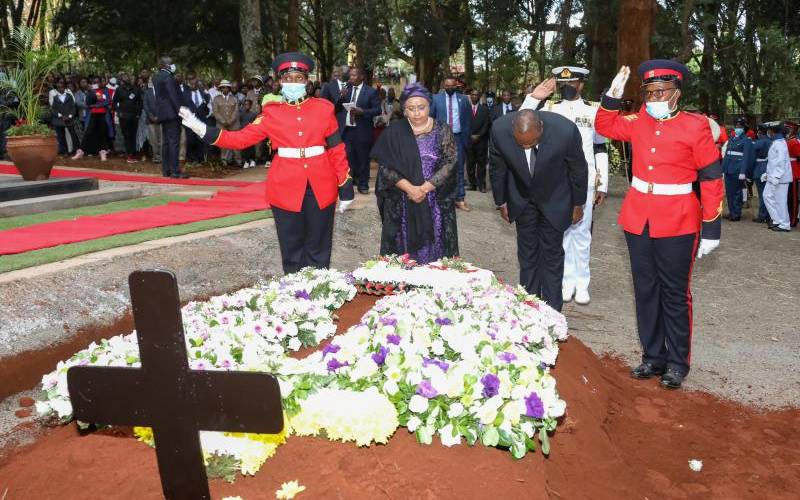×
The Standard e-Paper
Kenya’s Boldest Voice

An ode to a loving father; a final prayer; a call to emulate the departed president. At the end of it all, the "man of the town", returning to the land of his birth, was placed in his resting place for eternity.
Beneath a shade of trees that crowd the family's graveyard, Emilio Mwai Kibaki was yesterday laid to rest beside his wife Lucy Muthoni. Kibaki was reunited with his love of 56 years, after death separated them in 2016.